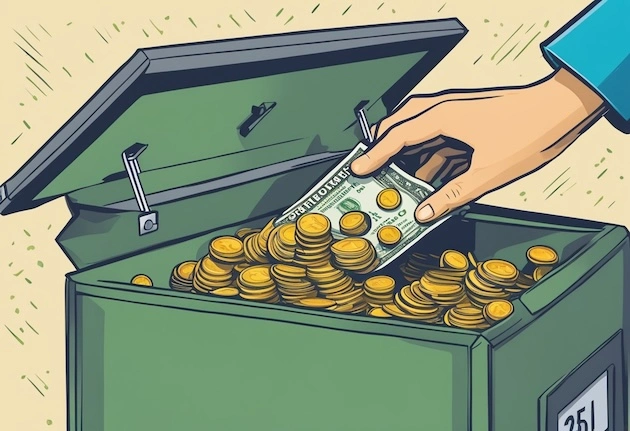The recording fee is one of the costs you will encounter when purchasing or refinancing property in New York City. The NYS government levies a recording fee to record various real estate documents, such as deeds, mortgages, and lease agreements.
Jump to: Mortgage Recording Tax | Recording Fee
The recording fee in New York varies depending on the type of property and the specific document being recorded. Governmental organizations set the fees, which go toward covering the cost of keeping these records.
Recording fees for a standard residential property differ from those associated with agricultural or commercial properties. There are extra charges for recording the satisfaction of a mortgage.
Understanding these fees is crucial for anyone involved in real estate transactions in NYC to accurately budget for the total cost of these government-related expenses.
Certain documents, particularly those related to co-op apartments in New York City, have specific recording requirements and fees. Financing statements for these properties are filed through the Automated City Register Information System (ACRIS), which serves as an electronic services platform for document submission.
Recording fees are crucial for real estate transactions in New York City, as they formalize the legal ownership of property.
What are Recording Fees in NYC?
Recording fees are charges assessed by the city’s government to officially record a variety of real estate legal documents. This includes deeds, mortgages, and easement agreements. The Office of the City Register records Uniform Commercial Code (UCC) Financing Statements for co-op properties, while others need to be filed with the New York State Department of State.
NYC Recording Fee Structure
Recording fees are a standardized part of the real estate transaction process. These fees are associated with the ACRIS system, which calculates and generates the total fee page at the end of the cover page session for property recordings.
Recording Fee Structure:
- Base Recording Fee: $12.00
- Per Page Fee: $5.00
- Minimum Fee: $22.00 (including a $5.00 surcharge)
Should a document exceed the standard page size and be formatted in double columns, the fee increases. For documents whose pages exceed 9″ x 14″, the cost is $24.00, not including the additional surcharge.
For example, recording the satisfaction of a mortgage costs $40.00. Charges like cross-referencing documents have a nominal fee.
For specifics on the latest recording fees and corresponding taxes, you can refer to the official NYC Department of Finance guidelines.

Mortgage Recording Tax in NYC
The Mortgage Recording Tax is a levy imposed by New York City when a mortgage is made and recorded against a piece of property. This tax applies to both residential and commercial properties and varies based on the size of the mortgage. It is usually paid by borrower and calculated as a percentage of the mortgage amount
When dealing with real estate purchases in NYC, understanding the mortgage recording tax is crucial, as it forms a significant part of the closing costs for the buyer.
Current Mortgage Recording Tax Rates in NYC
The mortgage recording tax is charged when a mortgage is recorded with the city. This tax applies to both mortgages and refinances and is based on the loan amount rather than the purchase price of the real estate.
For New York City:
- Mortgages less than $500,000: The tax rate is 1.80%
- Mortgages of $500,000 or more: The rate is 1.925%
It’s important to note that the above rates include a basic tax, which is state-mandated, as well as an additional tax and a special additional tax. The total tax rate combines these components.
Here is a brief breakdown of the tax by components (the percentages might slightly vary based on specific conditions):
| Component | Tax Rate |
|---|---|
| Basic Tax | 0.5% |
| Special Additional Tax | 0.25% |
| Additional Tax | 0.25% – 0.30% |
| Total for NYC | 1.8% – 1.925% |

The table below provides the recording tax rates in different counties of New York State:
| County | Tax Rate on Mortgages | Transfer Tax Rate |
|---|---|---|
| Bronx County | 1.925% > $500K | 1.4% |
| Kings County | 1.80% <= $500K | 1.4% |
| New York County | 1.925% > $500K | 1.4% |
| Queens County | 1.80% <= $500K | 1.4% |
| Richmond County | 1.80% <= $500K | 1.4% |
Outside New York City:
Counties within the Metropolitan Commuter Transportation District may charge an additional tax of 0.30% on the mortgage debt.
The actual payment of the mortgage recording tax is typically handled by the mortgage lender and paid during the closing of the real estate transaction. Tax forms needed to record the payment are often prepared as part of the closing process. Certain exemptions and rebates are available for first-time homebuyers.
The mortgage recording tax can be calculated using ACRIS Online tool provided by the NYC Department of Finance.
Buyers should also prepare for other costs like transfer taxes and various additional fees associated with the closing process.
Who is responsible for paying recording fees in New York real estate?
The property buyer is responsible for covering the recording fees in the New York real estate market. Recording fees are administrative costs attached to the legal recording of documents such as deeds, mortgages, and easements at a county recorder’s office. These fees are necessary for rendering the changes in property ownership and relevant financial transactions into the public record.
- Deeds: Upon the transfer of property, the buyer customarily pays for the deed recording fees.
- Mortgages: When a mortgage is recorded as part of a real estate transaction, it is generally the buyer who incurs the mortgage recording fee.
- Refinancing: The homeowner is responsible for the Refinancing fee, as they are the ones altering the existing mortgage terms.
Recording fees can vary by jurisdiction within New York. For exact fee structures refer to the county’s recorder or government websites. For example, the Automated City Register Information System (ACRIS) is used in New York City to determine applicable fees and requirements for filings.
Frequently Asked Questions
Here are some of the most common inquiries about NYC recording fees and related processes.
How to pay Deed Recording fee in NYC?
In New York City, deed recording fees can be calculated and paid as part of the Automated City Register Information System (ACRIS) process. Once the fee is determined at the end of the cover page session, payment options are available through the ACRIS system, allowing users to complete the transaction electronically.
How to file Mortgage Recording Tax in NYC?
To file the Mortgage Recording Tax in NYC, prepare the necessary documents, including the mortgage, tax forms, and any accompanying materials. Subsequently, these documents need to be submitted through the ACRIS system, which helps in recording the mortgage and automatically calculates the applicable taxes as part of the filing process.
What is the process for filing a UCC-3 termination in New York?
To file a UCC-3 termination in New York, the filing party must complete the UCC-3 Financing Statement Amendment form. This form should then be submitted to the appropriate filing office.
Is there a way to reduce or avoid mortgage recording taxes in New York?
Reducing or avoiding mortgage recording taxes in New York typically isn’t possible as these taxes are mandatory for applicable transactions. But, certain exemptions and rebates may apply under specific circumstances or for certain types of properties. Legal consultation is recommended to explore any potential tax benefits in depth.
Fees for Co-op Apartments and Shares
When it comes to co-op apartments, the Uniform Commercial Code (UCC) Financing Statement is a key document. It’s filed to record the interest of a cooperative corporation in a co-op unit. For co-ops in particular, the UCC Financing Statements are recorded through the Automated City Register Information System (ACRIS). This system is used to keep track of such filings within New York City’s five boroughs, including Staten Island. Recordings with ACRIS are specific to cooperative apartments and shares because these are considered personal property rather than real property.
Block and Lot Number Recording Fees
The Block and Lot Number (BBL) is central to identifying real property in New York City. Recording property-related documents with this identifier incurs certain fees. Documents like mortgages and deeds must be recorded with the correct BBL to ensure they are properly indexed in public records.
Conclusion
The NYC Mortgage Recording Tax Guide (2024) provides insights into the varying tax rates for mortgage recordings in NYC. These rates depend on the mortgage size and home category, with the lender typically covering a portion of the Mortgage Recording Tax (MRT).
It’s essential for interested parties to be aware that fees can fluctuate, and staying informed through resources like the NYC Department of Finance is key to understanding the latest charges for recording real estate documents in NYC. Buyers and sellers should factor these fees into the overall cost of their real estate transactions.